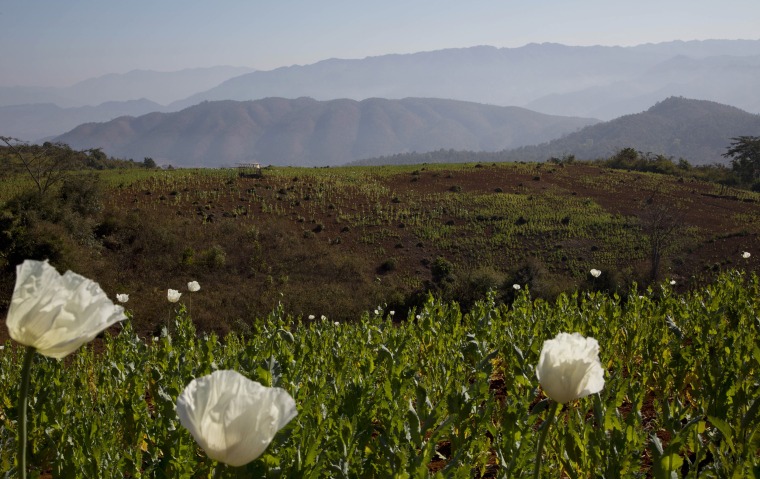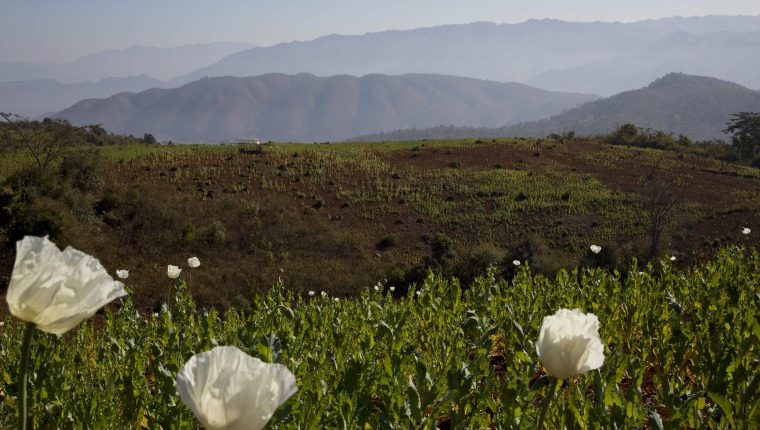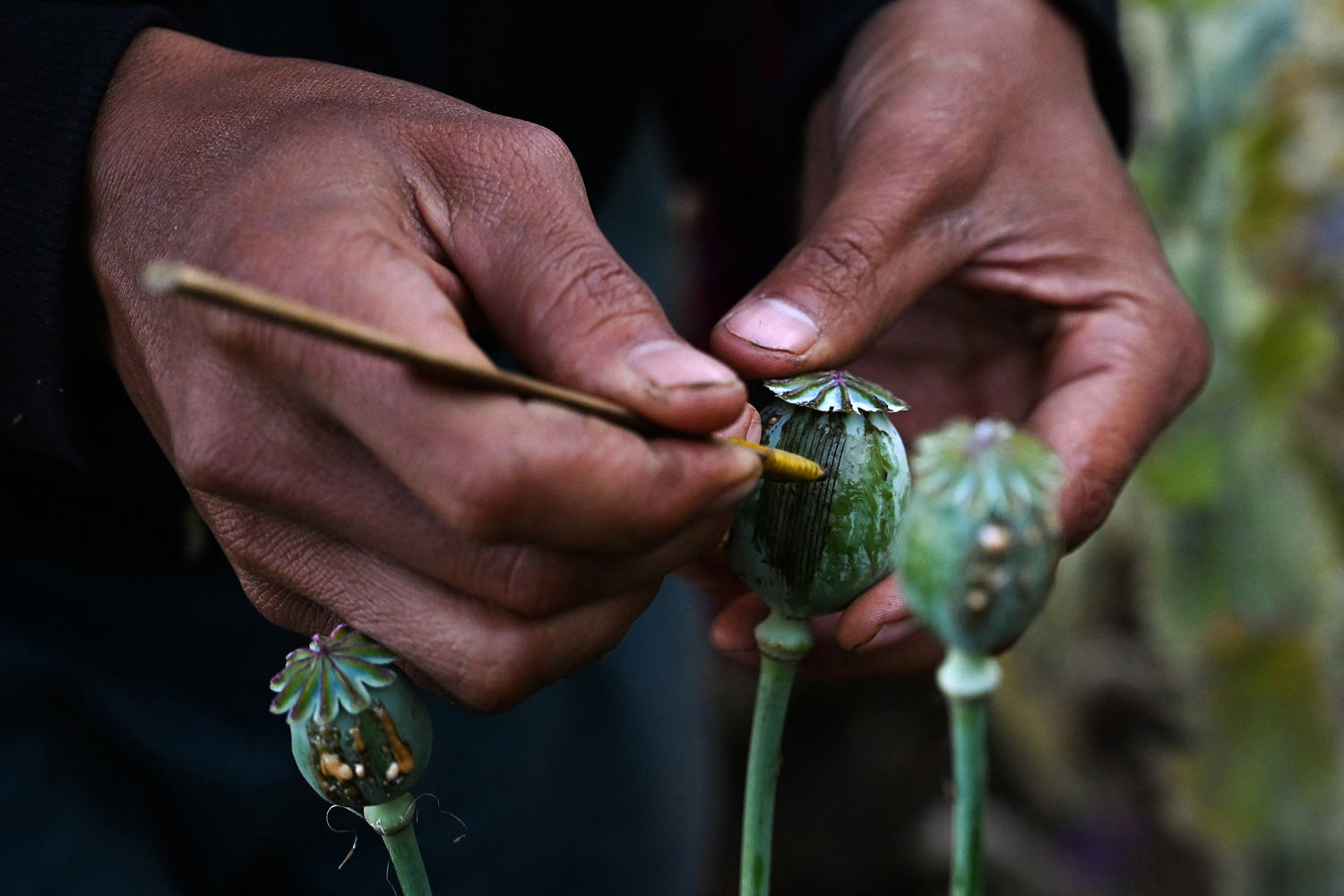BANGKOK — Myanmar, already wracked by a brutal civil war, has regained the unenviable title of the world’s biggest opium producer, according to a U.N. agency report released Tuesday.
The Southeast Asian country’s opium output has topped that of Afghanistan, where the ruling Taliban imposed a ban on its production, the United Nations Office on Drugs and Crime said in its “Southeast Asia Opium Survey 2023.”
The Taliban’s ban has led to a 95% drop in the cultivation of opium poppies, UNODC said last month. Opium, the base from which morphine and heroin are produced, is harvested from poppy flowers.
From 2022 to 2023, Myanmar saw the estimated amount of land used to grow the illicit crop increase 18% to 47,100 hectares (116,400 acres), the new UNODC report said.
“Although the area under cultivation has not returned to historic peaks of nearly 58,000 ha (143,300 acres) cultivated in 2013, after three consecutive years of increases, poppy cultivation in Myanmar is expanding and becoming more productive,” it said.
It also noted that the estimated opium yield expanded by 16% to 22.9 kilograms per hectare (20.43 pounds per acre) — topping the previous record set in 2022. It attributes that increase to “increasingly sophisticated means of cultivation, including increased plot density, improved organization of plants, and enhanced practices, such as the use of irrigation systems and potentially fertilizers.”
The violent political turmoil in Myanmar has contributed to the opium production increase.
“The economic, security and governance disruptions that followed the military takeover of February 2021 continue to drive farmers in remote areas towards opium to make a living,” UNODC Regional Representative Jeremy Douglas said.
The report notes that “opium poppy cultivation in Southeast Asia is closely linked to poverty, lack of government services, challenging macroeconomic environments, instability, and insecurity.”
For farmers, the bottom line is simple economics.
UNODC said the average price paid to opium growers increased by 27% to about $355 per kilogram ($161 per pound), demonstrating the attractiveness of opium as a crop and commodity and strong demand.
The figures mean farmers earned around 75% more than in the previous year, said the U.N. agency.

Douglas said that armed conflict in Shan state in Myanmar’s northeast, a traditional growing region, and in other border areas “is expected to accelerate this trend.” An offensive launched in late October by an alliance of three ethnic armed groups against Myanmar’s military government has further destabilized the remote region.
Northeastern Myanmar is part of the infamous “Golden Triangle,” where the borders of Myanmar, Laos and Thailand meet. The production of opium and heroin historically flourished there, largely because of the lawlessness in border areas where Myanmar’s central government has been able to exercise only minimum control over various ethnic minority militias, some of them partners in the drug trade.
In recent decades, as the region’s opium production dropped, methamphetamine in the form of tablets and crystal meth has supplanted it. It’s easier to make on an industrial scale than the labor-intensive cultivation of opium, and gets distributed by land, sea and air around Asia and the Pacific.
UNODC said in a statement accompanying its report that the region’s burgeoning drug production “feeds into a growing illicit economy … which brings together continued high levels of synthetic drug production and a convergence of drug trafficking, money laundering and online criminal activities including casinos and scam operations.”
Cyberscam operations, particularly in Myanmar’s border areas, have come under the spotlight for employing tens of thousands of people, many lured by false offers of legitimate employment and then forced to work in conditions of near slavery.
The recent fighting in Shan state is linked to efforts to eradicate the criminal networks running the scam operations and other illegal enterprises.
Source: | This article originally belongs to Nbcnews.com










